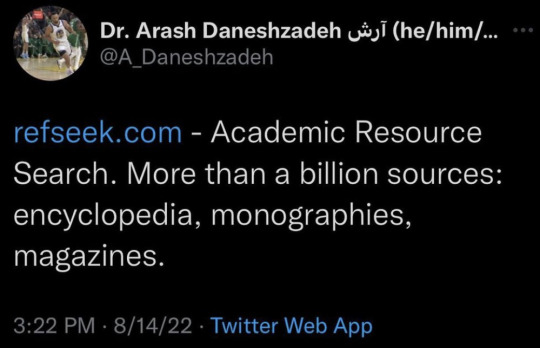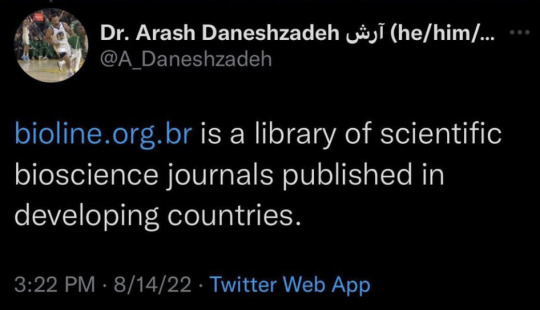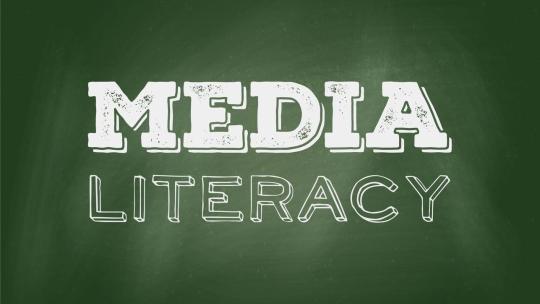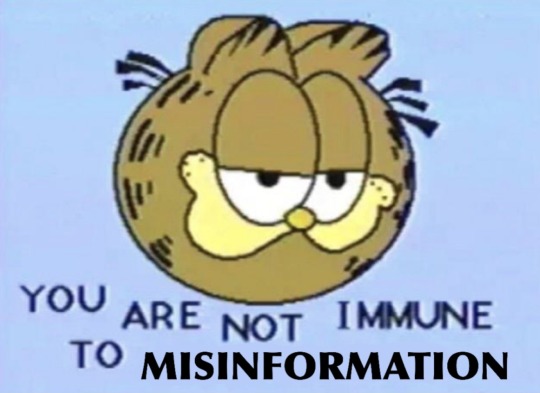Hi! My name is Emmelinn and this blog was created for my READ 4341 class. I will reblog media literacy links and discussion here.
Don't wanna be here? Send us removal request.
Text


refseek.com

www.worldcat.org/

link.springer.com

http://bioline.org.br/

repec.org

science.gov

pdfdrive.com
301K notes
·
View notes
Text
The Role of Media
The media plays a significant role in shaping public opinion and can indeed influence the positions held by viewers or readers. There are several ways in which the media can create a position for its audience. It is important for viewers and readers to be aware of these influences and engage in critical media literacy.
Framing
Media outlets have the power to frame news stories by emphasizing certain aspects while downplaying or omitting others. The framing of a story can influence how the audience perceives and understands the issue. For example, presenting a news story with a focus on the economic impact might lead viewers to form opinions based on economic considerations, whereas a focus on human stories might evoke a more empathetic response. The way in which a story is framed can subtly guide viewers toward a particular viewpoint.
Selective Reporting
Media outlets have limited time or space to cover all news and events. Therefore, they must make choices about what stories to cover and which ones to prioritize. This selectivity can influence the audience's perception of what is important or relevant.
Editorial Bias
Media outlets often have their own editorial stances, which can be influenced by the ownership, funding sources, or the personal beliefs of journalists and editors. These biases can manifest in the selection of stories, the tone of reporting, the choice of experts or sources quoted, and the language used.
Emotional Appeals
Media outlets frequently use emotional appeals to capture the attention and engage the emotions of their audience. By presenting stories in a way that triggers specific emotions such as fear, anger, empathy, or joy, they can shape the viewer's emotional response and subsequently their position on the subject matter.
Echo Chambers and Filter Bubbles
In the digital age, algorithms and personalized news feeds contribute to the formation of echo chambers and filter bubbles. Online platforms often prioritize content that aligns with a user's previous interactions and preferences, creating a self-reinforcing loop of information. This can lead to the exclusion of diverse perspectives and limit exposure to alternative viewpoints.

2 notes
·
View notes
Text
The Importance of Media Literacy
What is media literacy?
Media literacy refers to the ability to
critically analyze
evaluate
understand the messages and information conveyed through various forms of media.
Media literacy encourages individuals to become informed consumers and active participants in today's society.
Key components
It involves questioning the credibility, bias, and motives behind media messages, as well as analyzing the techniques used to manipulate or persuade the audience.
Recognizing and understanding the influence that media can have on beliefs, attitudes, and behaviors. It helps individuals become aware of the media's potential to shape public opinion, reinforce stereotypes, and impact social and cultural norms.
Encourages individuals to not only consume media but also engage in media production. It involves understanding how media messages are constructed, including techniques such as framing, editing, and storytelling.
Evaluate the accuracy, reliability, and credibility of information encountered in media. It involves identifying bias, recognizing misinformation or disinformation, and utilizing fact-checking techniques to assess the veracity of claims and sources.
Media literacy focuses on understanding how various groups, identities, and communities are represented in media. It involves analyzing the portrayal of gender, race, ethnicity, sexuality, socioeconomic status, and other dimensions of diversity, and recognizing the potential for stereotyping, underrepresentation, or misrepresentation.

2 notes
·
View notes
Text
Our roles as viewers and readers
What I've learned..
We must use critical reasoning to interpret the meaning of a text.
Understand that the media makes choices that produce meaning. For example, images, videos, or stories, position viewers to respond in certain ways.
We must consider the choices the media makes and the effects it might have on us as viewers. More importantly, we need to consider the social and political consequences of these effects.

2 notes
·
View notes
Text
Hank Green ranting about the damaging idea that kids on TikTok fall for misinformation more easily than other demographics that people who feel superior to them often have. (x)
Here's a post that includes a list of TikTokers that work to fight misinformation on Tiktok instead of just complaining about it and many many more resources.
46 notes
·
View notes
Video
youtube
MEDIA LITERACY FOR WRITERS
A video about an essential (and misused) skill for both writers and people who use media critique.
Quotes:
“While making a claim and then support said claim with evidence can appear strong, real strength is shouting over anyone who naysays you. Of course, like space, on the internet no one can hear you scream in text, so just use ALLCAPS instead.”
“Why use evidence to support a claim when I can use memes instead?”
“Therefore I will instead simply assume the work is endorsing my perspective rather than condemning it. And no, I don’t care what cognitive dissonance is, quit bugging me about it!”
“Instead, we should focus on the almighty subtext. Ah. Subtext! Sweet ambrosia for shippers and academics alike. Come to think of it, academics and shippers have a lot in common in that they’re both extremely dedicated to their particular interpretation of subtext.”
What? The story is a cautionary tale? I’m not supposed to agree with every action the protagonist takes? But everyone knows that every protagonist’s morality aligns one hundred percent with the author’s! Next thing you’ll tell me that not every protagonist is meant to be a wish fulfillment self insert!”
“I think a pretty reasonable criticism of a story is that it doesn’t exclusively cater to my demographic and by my demographic I mean pretty much me. Franchises can only survive by solely pandering to the most hardcore and specific set of fans and all other voices should be shut out and ignored. All stories belong only to me! I think everyone can agree that’s a pretty reasonable position to take.”
”Yes a lot of buzzwords are either loaded with enough dog whistles to summon every canine on the continent, or are so diluted through overuse that they have become vague static background noise for a jaded and cynical internet who will be sick of hearing about it. But I’m going to wear my buzzwords proudly like a label even as I make fun of other people for doing the exact same thing. See my buzzwords are from academia though! So they’re official buzzwords, even if I’m using them incorrectly because my only knowledge of them comes from my Twitter feed and not the dry academia books they originate from.”
“Remember the goal isn’t to analyze and think critically about media. Instead it should be more like ‘look at me! I outsmarted the author!’. And if I end up looking like a idiot instead, well there’s always willful delusion!”
33 notes
·
View notes
Link
One thing to remember is that good people are out there. Good things are happening. While outrage tends to spread faster, good news exists too. In fact, it’s often not newsworthy at all, because by definition, the commonplace activity that is ever present around us isn’t news. There is overwhelmingly so much goodness in the everyday experience of being alive, so many positive interactions and occurrences in our communities, that it is simply not reported to the same degree. So we focus on the things that need changing, or the sensational headlines that blend fact with emotion for the sake of shock-entertainment, and forget that everyday people are doing everyday things.
2 notes
·
View notes
Link
2 notes
·
View notes
Text
Here is your regular reminder to watch/rewatch these two playlists and make anyone you know (especially younger folk, but really anyone) watch them too.
We all talk a lot about how much being online can suck, how people get radicalised online, how fast misinformation spreads- this is how you can do something about it and protect yourself and others.
Watch. Share. Internalise. Repeat.
123 notes
·
View notes
Link
2 notes
·
View notes
Link
4 notes
·
View notes
Text
2 notes
·
View notes
Text
An actually useful media literacy guide
8 notes
·
View notes
Text

A few good sites/pages for learning some media literacy and spotting online misinformation:
Snopes.com - a site that’s been around for twenty years (long before Google search engine was a thing) debunking urban legands and, more recently, fake news and misinformation.
Checkyourfact.com - a site similar to snopes that debunks fake news and viral “facts”. It’s the place I found out that post about Kraft releasing a rainbow coloured mayo called “Real Gaydo” for pride month was a satirical photoshop piece that was stolen from its original artist’s Instagram and shared around as a real product on Facebook and other sites.
School Library Journal - has a page of resources for teaching students and teachers how to spot misinformation and fake news and improve media literacy.
NAMLE.net - aka the National Association for Media Literacy Education, the leading nonprofit membership organization dedicated to advancing media literacy education in the United States.
Newslit.org - an educational nonprofit that provides programs and resources for learning media literacy. What’s cool about this site is they have an extensive number of quizzes designed to help you test your media literacy skills, which give you tips along with the question answers about how to spot and avoid misinformation and fake news. All of which you can try out for yourself here.
If anyone has more good online literacy resources like this, please feel free to add more!
515 notes
·
View notes
Text
Media Literacy Masterpost
This post is constantly evolving. You can help by sharing resources you know, pointing out broken links or even expressing criticism of the resources provided here if you have any. Come back any time to see if there's anything new. (Google Docs version for easier sharing outside tumblr)
Updated: February 21st 2023
The Basics
Get answers to the first questions you might have: What is media literacy? Why should I care? How does it affect me and others? Is there even anything I can still learn if I feel pretty internet-savvy? And more.
Websites
Get a more in-depth look at certain aspects of media literacy and learn about and apply media literacy skills.
Truth Decay Project Tools Database* (A lot of websites that are relevant are listed here. Only websites that aren't on that list will be listed in this post)
National Association for Media Literacy Education
Poynter
MediaWise (by Poynter)
Media Literacy Now
The Media Bias Chart
SourceWatch
Reuters Fact Check
The Conspiracy Chart
MediaSmarts
Casey Fiesler
InVid
News Literacy Project
Harvard Misinformation Review
Check Your Fact
Articles
See what experts have to say.
Interactive Learning Tools
This can help you learn about media literacy in a more hands-on way.
Truth Decay Project Education/Training Tools* (A lot of interactive tools that are relevant are listed here. Only websites and tools that aren't on that list will be listed in this post)
Go Viral! (Covid Misinformation)
News Lit Quiz
Critical Thinking Project
Social Media
Following these accounts can help sharpen your media literacy skills and you don't even have to do much because it will just pop up in your feeds! Follow, like, comment, retweet, etc. to help spread the word.
Tumblr
@is-the-post-reliable
YouTube
MediaWise
MediaSmarts
PolitiFact
Twitter
I have personally left twitter due to its new ownership, so it will be difficult for me to keep vetting the listed accounts the way I used to, however I will keep them listed as long as I still trust them.
MediaWise
National Association for Media Literacy Education
PolitiFact
Fact-Checking Network
AFP Fact Check
Reuters Fact Check
Media Literacy Now
Abbie Richards
TikTok
MediaWise
Abbie Richards
Aslan Pahari
Astro Alexandra
Professor Casey
Hank Green
Adam Conover
PolitiFact
Zeke Darwin
babs_zone
Instagram
MediaWise
Media Literacy Now
PolitiFact
Bonus
My media literacy tag
Remember to share these resources to help shape a world wide web that is safer and smarter and protect yourself and others from manipulation and radicalization.
* Criticism of this source has been expressed. I've provided my reasoning to still include it as well. I encourage you to make your own judgement.
[Image ID in alt]

(I could since then not find an obvious bias in the lists that I have linked)
Information on the history of the RAND Corporation and its involvement with the US Military here.
1K notes
·
View notes